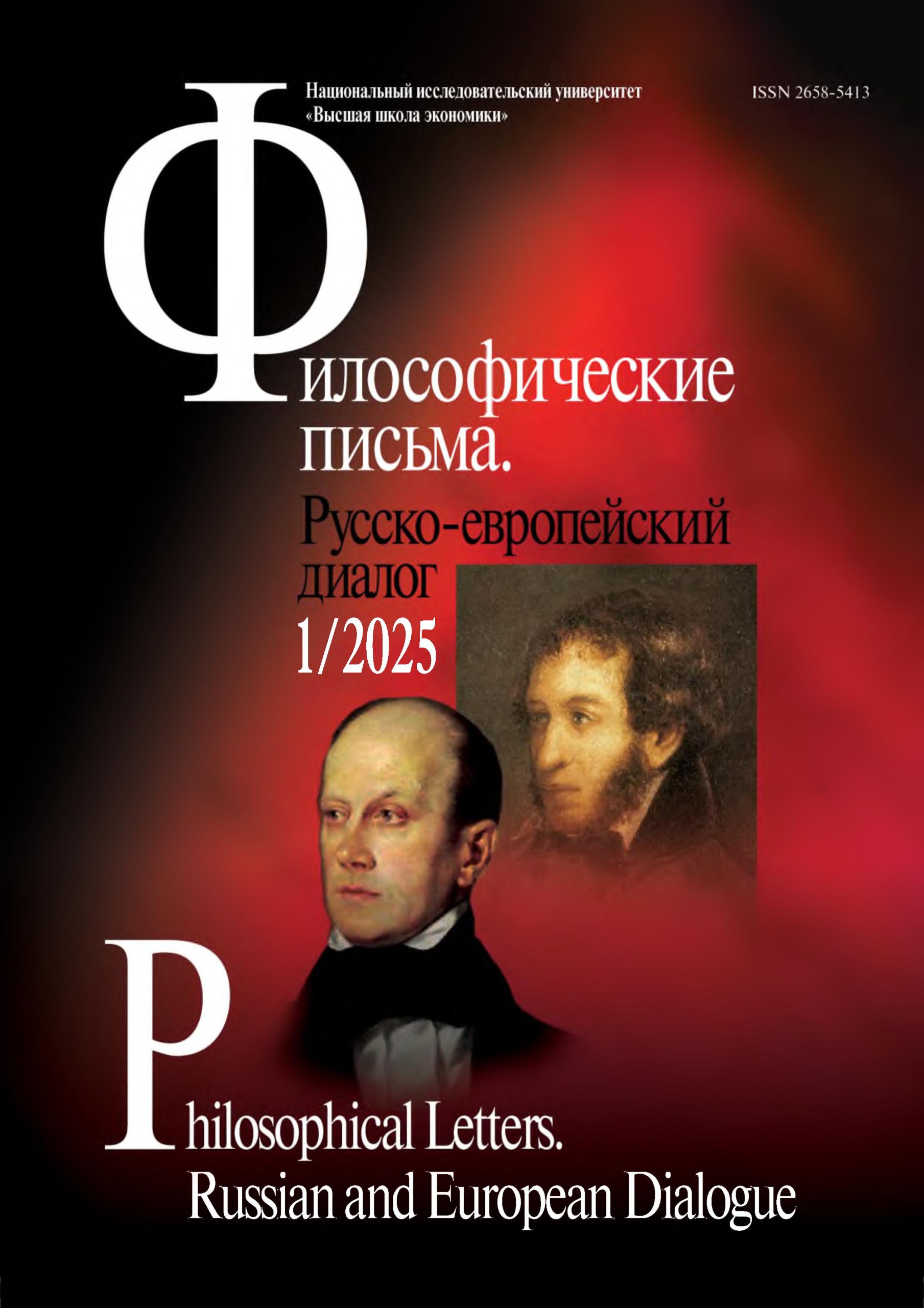Two ‘Houses' of Vladimir Kantor: Between Philosophy and Literature
Abstract
A philosopher's anniversary is always a “retrospective” on the past with the desire to understand the intellectual trajectories of their work. Vladimir Karlovich Kantor follows the path of the writer-thinker, creating two “houses” (as he envisioned at the very beginning of his creative journey) — Literature and Philosophy. His method of Philosophical “Writing” presupposes a holistic unity of reason and feeling in understanding reality, and therefore, the works of V. K. Kantor fit into the tradition of “positive philosophy” (non-positivism) on Russian soil, including the ideas of P. D. Yurkevich, V. S. Solovyov, L. M. Lopatin, Princes S. N. and E. N. Trubetskoy, G. G. Shpet, and others. The philosophical “Writing” of V. K. Kantor is one of the variations of existential ecology, which is fundamentally human-sized, i.e., directed towards the study of how a person comprehends themselves in the world through acts of narration (through storytelling). Most of the literary works created by the celebrant contain not only a metaphorical description of reality (the being of Russian classics) but also a philosophical element of self-reflection. V. K. Kantor offers to those who create culture (artists, poets, writers) “to understand by depicting,” to comprehend “sensuous thought” in specific historical contexts. The authors of this article followed this motto, turning to the philosophical prose of the celebrant.

